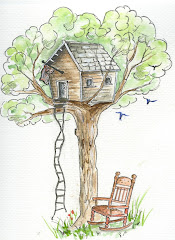
My first encounter with Pippi Longstocking happened one afternoon while I was at my grandparent’s house when I was seven. The New Adventures of Pippi Longstocking came on while I was there, and I loved everything about her, (so much so that I dressed up as her that Halloween). To me, she seemed like the ideal friend, one who would stand by you to help fight your battles, and who would break you out of your “shell,” like she did for Annika in the movie. I remember wishing that I could have a friend like her, though her adventures seemed so inconceivable, that I could only think of her in my mind as an imaginary friend, and not as a person that might really exist. I was lucky in this sense, because when I got to middle school I met my soon-to-be best friend Misi during gym, and my next three years were spent with a girl just as freckly, and almost as creative and whimsical as Pippi. I know lots of people who hated all the drama of middle school, but I mostly look back with fondness because of her unique approach to life.
So naturally, after all this long-held Pippi appreciation, I was excited that we would be reading Pippi this semester, and I must say that I’m not disappointed in the slightest. I love how nonsensical and zany Pippi often is, yet also flawed, (as the best protagonists always are). Perhaps Pippi’s biggest flaw is her seemingly pathological lying, which she does so many times during the novel that I stopped marking the pages. Pippi says on a couple of occasions, “how can you expect a little child whose mother is an angel and whose father is king of a cannibal island and who has sailed on the ocean all her life—how can you expect her to tell the truth always?” (18), or “…know how to behave in school?” (58-59). Here, Pippi relates her lying, as well as her inability to behave properly in public, to her lost parents. What I find funny about this implication, is that it means that if both of her parents were around, she would (naturally) be a different kind of person, but ironically, would also be a lot less fun.
If Pippi had had a traditional upbringing, then she might have been very much like Tommy and Annika, and thus nice enough, but also kind of boring. Thus Lindgren, to make Pippi into a more “fantastic” type of character must write her as an orphan, so that even daily activities, like scrubbing the floor or making breakfast, become adventures. Indeed, if Pippi had “known better,” then there would be no excitement for a child reader when they find out Pippi will be going to go to school or the circus for the first time (“What will Pippi do, next?”). If Pippi had the same upbringing as everyone else, then she would likely act like everyone else, and decidedly, Pippi is not like most children—her inhuman strength included. However, by creating her as a near orphan that has been raised on a pirate ship, Lindgren makes her an “other” figure, which instead of making her an outcast that is avoided by everyone, makes her into a character that is exciting and unpredictable for the other characters and readers alike.
Just for fun, I have a couple of clips from the movie I originally watched, The New Adventures of Pippi Longstocking. The first is a short movie trailer, and the second is the opening of the movie, complete with the movie’s extremely catchy theme song. (About a minute of watching this clip will give you the gist of the song.)



